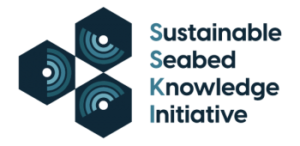Advancing deep-sea taxonomy

Overview
This voluntary commitment #OceanAction41239 was registered at 2022 United Nations Ocean Conference building on a previous commitment registered in 2017. It reflects ISA’s responsibilities to protect the marine environment and promote marine scientific research in the Area.
Non-destructive, cost-effective, and easily replicable methodologies for studying marine biodiversity, including environmental DNA and video surveys, are increasingly being applied in deep-sea environmental studies, enabling the discovery of new deep-sea organisms. However, the scientific value of this information remains untapped in many aspects. In particular, methodological inconsistency across surveys and the absence of comprehensive reference catalogues impedes the identification of organisms and the matching of genetic sequences.
A consistent and standardized compilation of data arising from mineral exploration activities is required to improve species identification and description and improving broad scale biodiversity assessments in the deep sea.
By advancing deep-sea taxonomy, ISA will create an interdisciplinary nexus between governments, scientific communities, international and regional organizations and relevant industries.
Voluntary Commitment 4 contributes to the following SDGs:



Implementation
This voluntary commitment is being implemented through the following initiatives:
In December 2020, the ISA Assembly adopted the Action plan of the International Seabed Authority in support of the United Nations Decade of Ocean Science for Sustainable Development. One of the six strategic research priorities identified in the Action Plan is focused on standardizing and innovating methodologies for deep-sea biodiversity assessment, including taxonomic identification and description, in the Area.
In this context and continuing the efforts of the ISA Secretariat to facilitate the integration of taxonomic knowledge into ISA’s work for the protection of the marine environment in Area, a series of workshops were convened in collaboration with the Ministry of Ocean and Fisheries and the National Marine Biodiversity Institute of Korea.
- Enhancing biological data sharing to advance deep-sea taxonomy (Vietnam, scheduled for October 2023)
- Enhancing genetic approaches to advance deep-sea taxonomy (Republic of Korea, 2022)
- Enhancing image-based biodiversity assessments to advance deep-sea taxonomy (Jamaica, 2021)
- Workshop on deep-sea taxonomic standardization: strategic approaches for collaboration (virtual, 2020)
 The ISA Secretariat and partners launched the Sustainable Seabed Knowledge Initiative (SSKI) in 2022. As a model example of concerted global efforts to increase the availability and accessibility of scientific information on deep-sea ecosystems, SSKI will serve as a catalyst to generate, assess and disseminate new deep-sea biodiversity information to inform decision-making processes and ensure effective protection of the marine environment in the international seabed area (the Area).
The ISA Secretariat and partners launched the Sustainable Seabed Knowledge Initiative (SSKI) in 2022. As a model example of concerted global efforts to increase the availability and accessibility of scientific information on deep-sea ecosystems, SSKI will serve as a catalyst to generate, assess and disseminate new deep-sea biodiversity information to inform decision-making processes and ensure effective protection of the marine environment in the international seabed area (the Area).
To fulfill its objectives, SSKI will rely on the establishment of an interdisciplinary network of experts and key stakeholders, including Member States, the scientific community, competent international organizations and the industry (ISA Contractors in particular).
The initiative and the new knowledge it will generate will enable scientists to create maps of life on the seafloor and help understand and manage the possible effects of anthropogenic activities on deep-sea ecosystems.
In cooperation with Ifremer and with the financial support of the Government of France, the Secretariat established a deep-sea taxonomy postdoctoral fellowship for candidates from developing States Members of ISA.
Dr. Ranju Radhakrishnan (India) started the 18-month fellowship in September 2022, focusing on developing and testing new methods and technologies for deep-sea species identification.
The fellowship is part of the Ifremer Blue Revolution project. It involves work on developing and testing three-dimensional imaging techniques to identify meiofauna organisms of deep-sea ecosystems found in areas currently explored for mineral resources. The fellowship will also contribute to identifying key species that can be used as indicators for assessing potential environmental changes in the future.
On the occasion of International Day of Biological Diversity on 22 May 2023, SSKI launched “One Thousand Reasons”, a call for taxonomy projects to describe deep-sea species. Applicants can submit their project proposals until 22 July 2023 and a panel of experts will make a decision on successful applications based on scientific merit, potential impact and feasibility. The chosen candidates will receive financial support of USD20,000 for laboratory analysis, data processing, publication and dissemination.
The “One Thousand Reasons” campaign opens the door for collaboration on ISA’s commitment to generate a lasting legacy in deep ocean sciences – the description of at least 1000 species new to science in areas beyond national jurisdictions by 2030.

